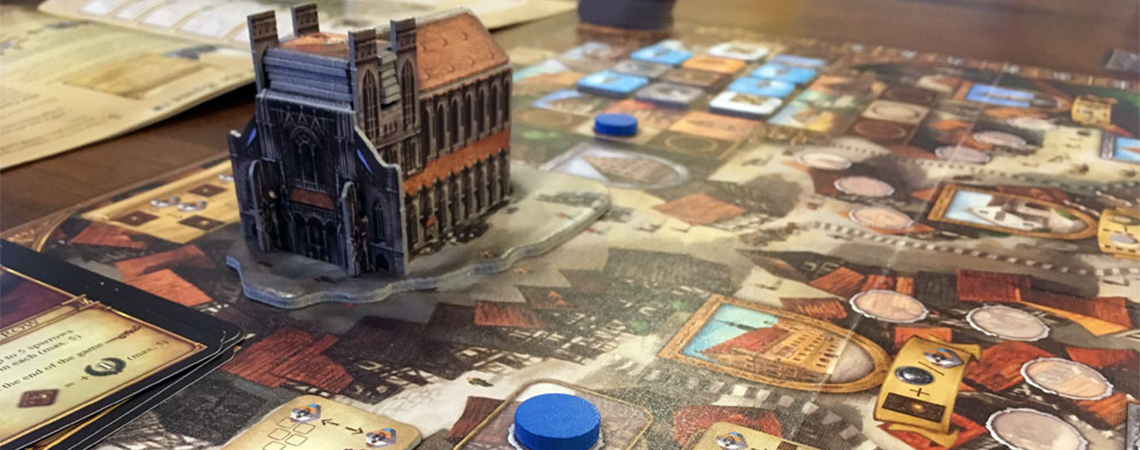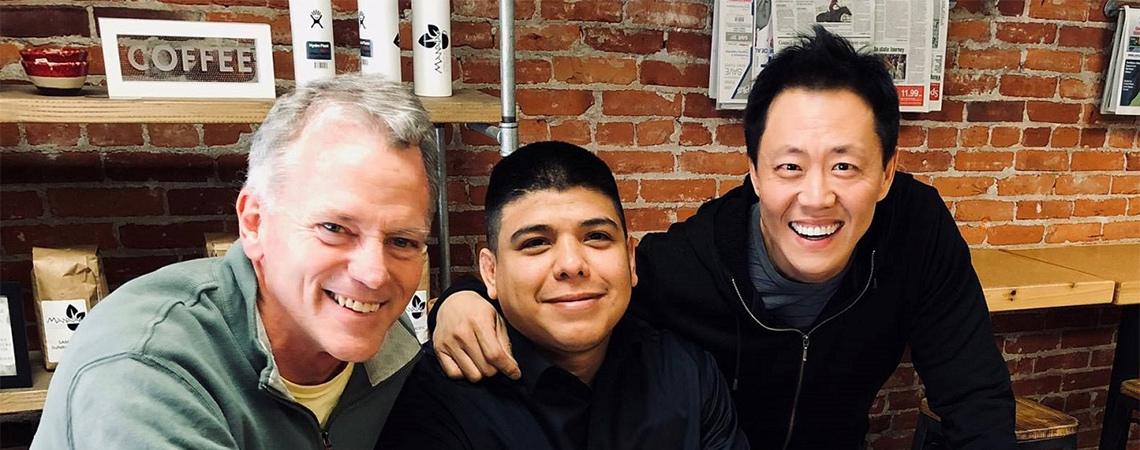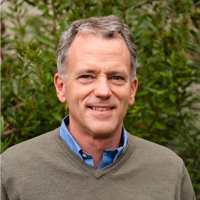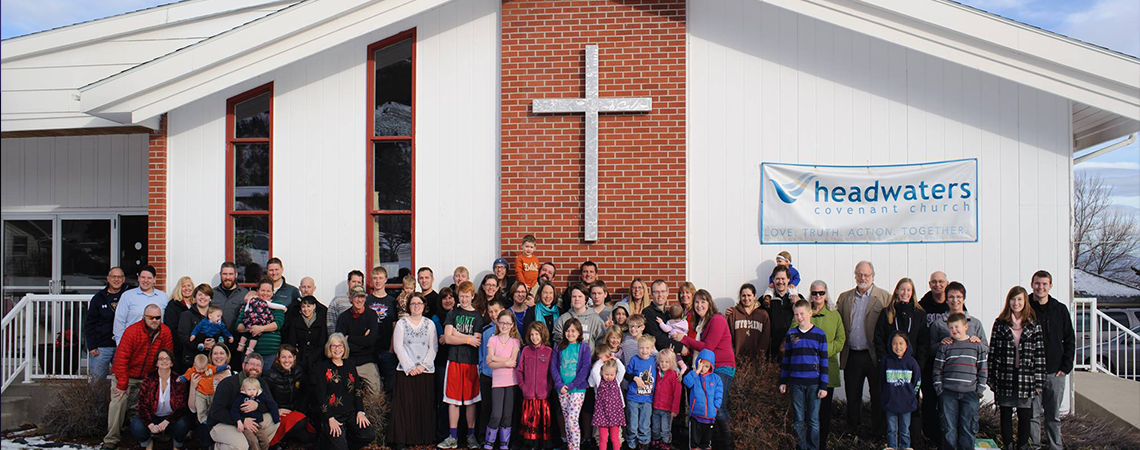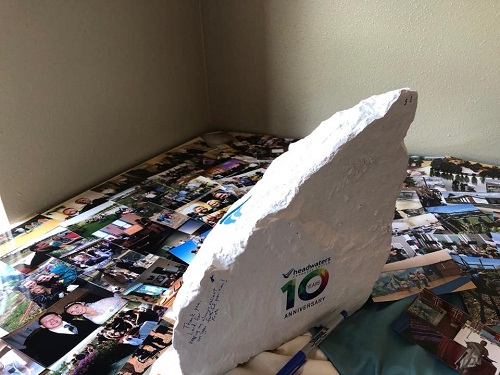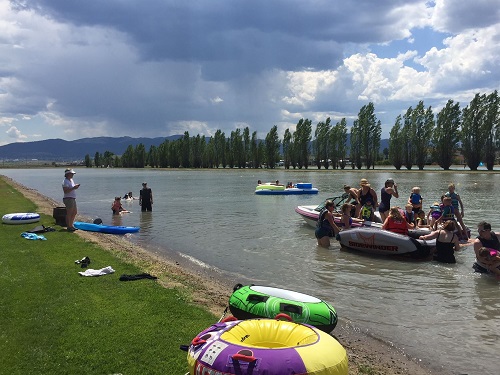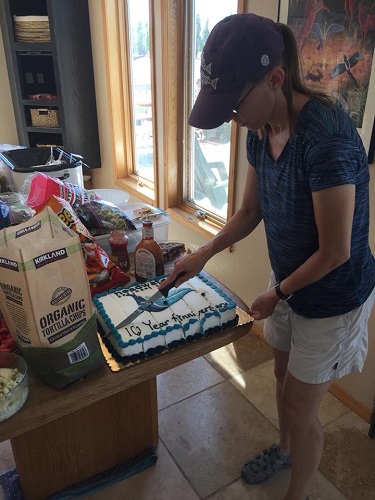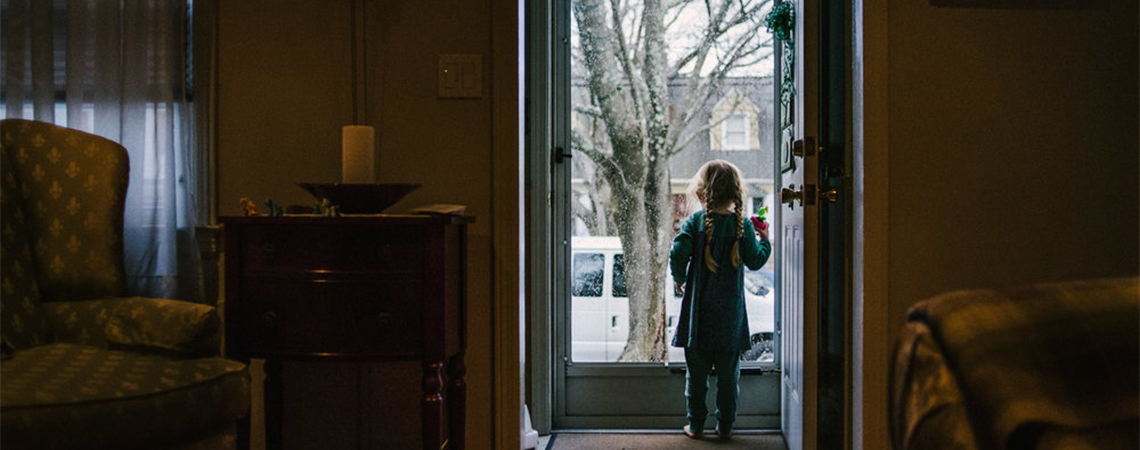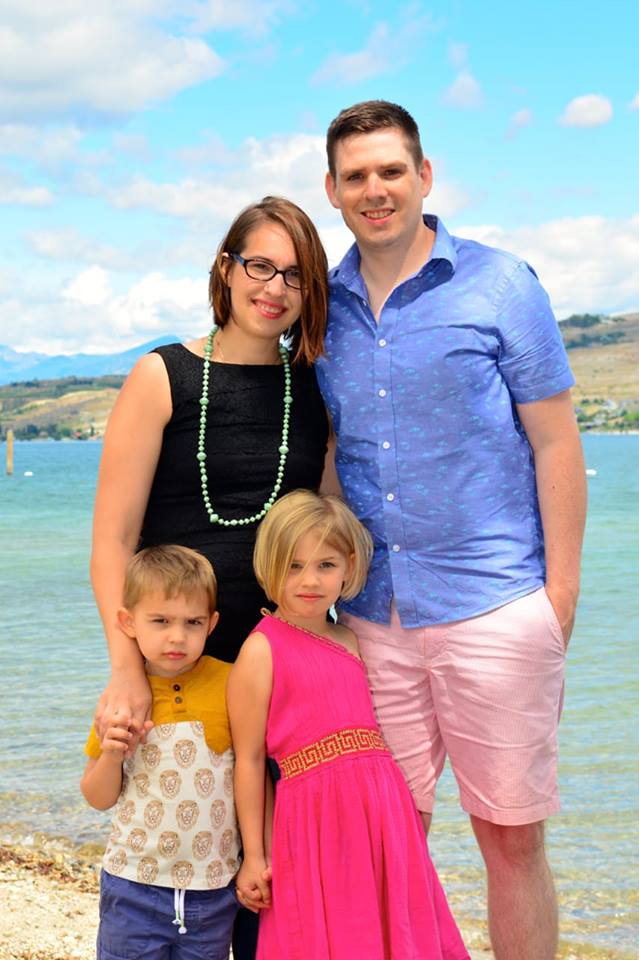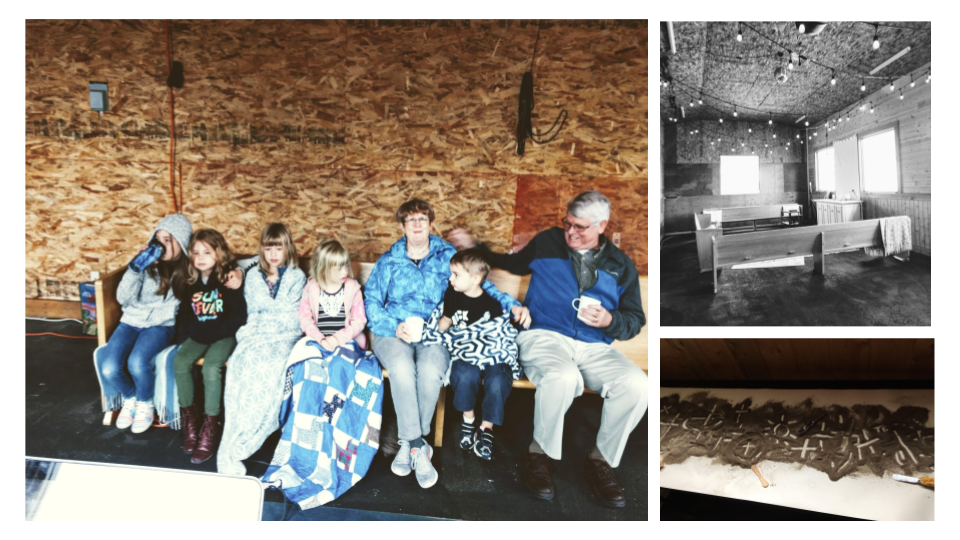By Sharad Yadav, Lead Pastor, Bread and Wine

The word “church” – just like the word “family” – means radically different things to different people, depending on what your experience has been. Some people remember it as the last place they were loved, a time when they felt like their lives were on track or a hopeful disposition about their future. Of course the opposite is true, too. It can be the deepest memory of betrayal and abuse. And of course for even more people it conjures something less vivid than either of those things, which can be worse. It is a tepid, well-meaning but desperately out of touch assembly of uninteresting people, forced upon us in youth. Those reactions summarize my ministry environment in Portland pretty well. It has a small population of people who love the church, a larger population of people who are disgusted with it and the majority of people whose indifference is only faintly flavored with love or disgust, like the barely detectable peach-pear aftertaste of a LaCroix.
When I moved to Oregon from Idaho in 2013 to help lead an independent evangelical church called Bread & Wine, I immediately felt more suited to the religiously cynical environment than anywhere else I’d ministered. Even my college age conversion (from an adolescent, Nietszche fetishizing, punk rocking atheism) began with skepticism about my skepticism. A subsequent hunger for certainty thrust me into a fundamentalist environment which ended up nurturing my cynicism even more deeply. My developing faith began to mirror my childhood racial identity as a second generation Indian in a rural community: it was an ever tightening tension. I am neither American nor Indian but somehow both; my passionate relationship with God has always been characterized by an internal dialogue of doubt.
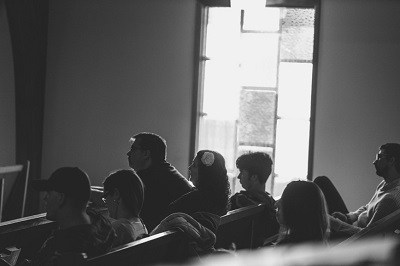
Portland had turned these alienating dimensions of my personhood into a profound opportunity for connection. Its story of racial violence is something that lives inside of me. The tension in all the individual quests for spiritual meaning alongside a pervasive skeptical posture maps the dynamic of my own soul. For that reason, ministering in this city often feels like ministering to myself. But that, too, can generate a profound feeling of loneliness, especially in an independent church. Pastoring in an urban environment had all its own challenges, with the constant change and rotating core of people carrying us into the work of re-planting. But the need for belonging, which characterized so much of my own journey, became unbearable. I felt invisible. God heard my cry over the last few years in Jon Lemmond, a Covenant pastor in Salem. Having been a close friend and pastor of my twin in his previous post in Santa Barbara (where my brother is a theologian at Westmont College), I happily served as a genetically identical substitute. It was that relationship which exposed me to the wider church family of Covenanters. In the relationships that developed, with Joel Sommer (Access Covenant), Stephen Bjorlin (Portland Covenant) and Nate Salinas (Sunset Covenant), I became visible.
Standing on the border of a new reality conjures both hope and fear. The last significant induction into community I experienced was in my conversion; but the belonging I was offered in that fundamentalist tradition came at the steep cost of my selfhood. This environment was to become the soil in which my roots were surrounded throughout my early discipleship, seminary training and the entirety of my ministerial life. Making my way out of the wilderness has brought me to many false frontiers in the quest for belonging. In an interview Greg Yee once mentioned that they’d never had a church engage as much as ours before coming into the family. I’d guess that story has something to do with it.
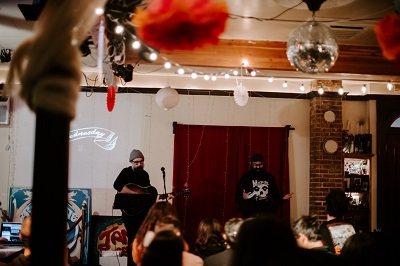
One of the immediate signals that we’d found “our people” was the highly relational way we were invited into the family. Our leadership team spent several months connecting with the PacNWC staff as we evaluated our fit. I had a few meals with the illustrious Peter Sung, as we discussed my ministry journey, giftedness and obstacles until we decided that the best way to tumble into the family was as a church plant. Dawn Taloyo met with and corresponded our team. Erik Cave made himself available to our children’s ministry team. I was invited into a multiethnic pastoral cohort that provided a place to process the unique challenges of my own identity – for the first time in 20 years of pastoring. I attended Midwinter where I could more closely investigate the culture of the Covenant and wander right into the middle of the family’s open wounds around the boundaries of fellowship and human sexuality. In all of that engagement the burning question for me was, “Is this safe?” Is this a safe place to prosecute my experience of reality, to flower into the redeemed version of myself, to pursue beloved community, to open myself in vulnerable relationship, to listen together for the voice of God? One of the most beautiful insights of the Pietist tradition is that the answers to those questions are all rooted in freedom of conscience.
That’s what we detected most profoundly in the Covenant family, which stirs our longing to call it home. This is what my soul has hungered for in a Christian community, not the agreement which comes from the list of doctrinal perspectives, ministry methods or historical figures we happen to share – but from the holy ground upon which our God engages the heart. Our fellowship isn’t based on the hardened, finished doctrinal, practical or heritage we have chosen, the end product of having struggled with what we believe. It is based on that space inside the kiln, where we encounter God in the process of our spiritual formation, where the Spirit is doing His work. I want to be part of a community that can wait in the fire until Christ Himself removes us from the oven, where the struggle is the holy ground. That’s what freedom of conscience means – the honoring of the process in one another.
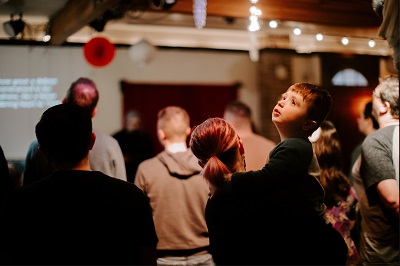
COVID-19 has delayed us in the process of coming into the Covenant. The assessment track we were pursuing froze along with everything else in the societal seizure of this pandemic. The potential funding we were pursuing along with the process of ordination has been smothered in uncertainty. But not our sense of belonging. It’s the one thing that doesn’t seem to be in question. It’s hard to overstate the strength it has given me, not only to minister to skeptical people in uncertain times, but to carry my own skepticism and uncertainty before the God who shapes me in the fire.
One of the reasons I love the name of our church, Bread & Wine, is because it’s the symbol Jesus used to communicate how God wants to meet human beings – not in a temple or elaborate ritual, but around a table where people are invited to bring who they really are. We are invited to gather around a representation of God that is unlike the easy certainty of fundamentalism or the self-confidence of atheism. In the Eucharist we come to a God who is broken on the cross like bread is torn at the table. He is someone who suffers like us, suffers with us and suffers for us. He says “father forgive them” not as someone above it all, but from the vulnerability of his own nakedness on the cross.
Our hope is to be a safe place for people to ask hard questions about what their lives mean. We want the reality of God’s love to be seen, heard and felt among us. The forgiveness we’ve found in Christ creates security to carry the tensions inside us without being drummed out of the community or labeled unworthy of love. For now, at least, it seems like Bread & Wine is that kind of place. For the sake of our city, as much as ourselves, I’m hopeful that coming into the family will ensure it stays that way.
[Click Here] to find out more about Bread and Wine Community
[Click Here] to support Bread and Wind with a financial gift
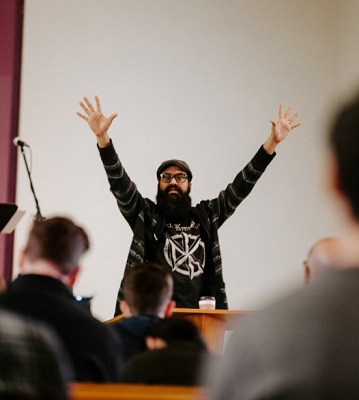
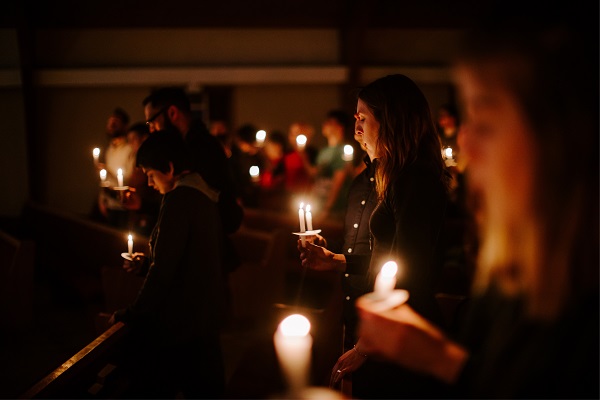

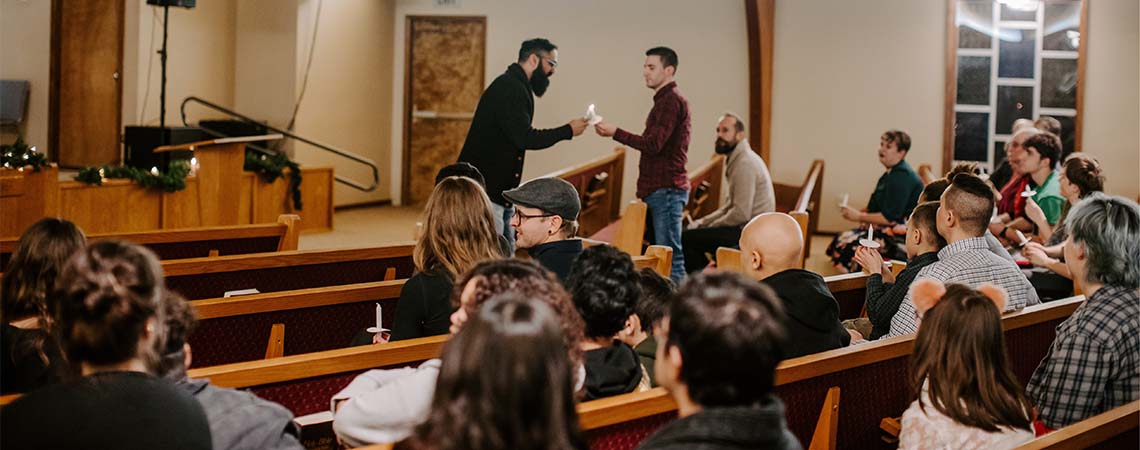
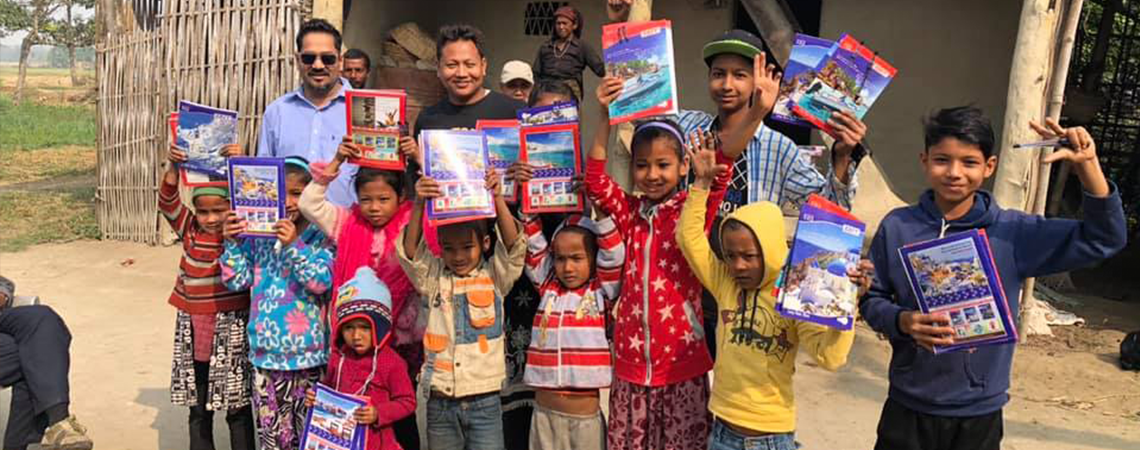
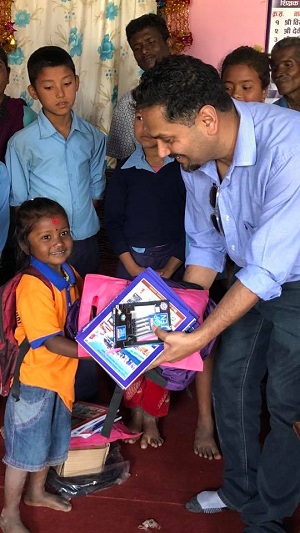
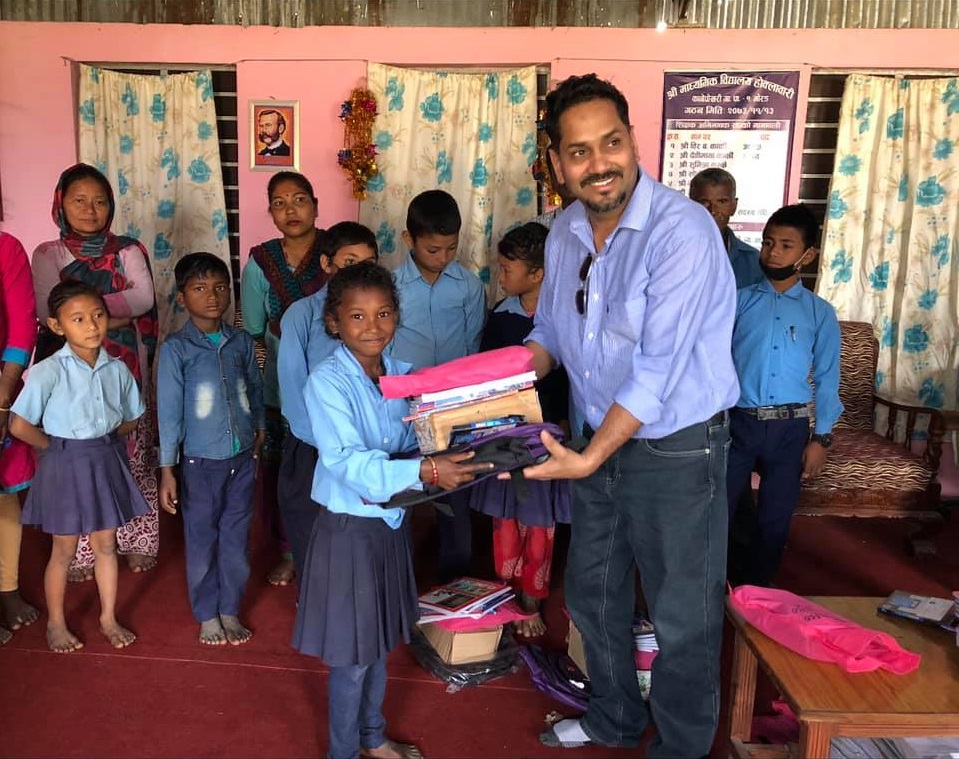

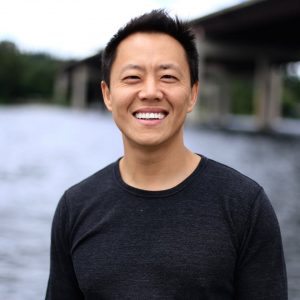 Matthew 5:14-16 You are the light of the world. A city set on a hill cannot be hidden; nor does anyone light a lamp and put it under a basket, but on the lampstand, and it gives light to all who are in the house. Let your light shine before men in such a way that they may see your good works, and glorify your Father who is in heaven.
Matthew 5:14-16 You are the light of the world. A city set on a hill cannot be hidden; nor does anyone light a lamp and put it under a basket, but on the lampstand, and it gives light to all who are in the house. Let your light shine before men in such a way that they may see your good works, and glorify your Father who is in heaven.
